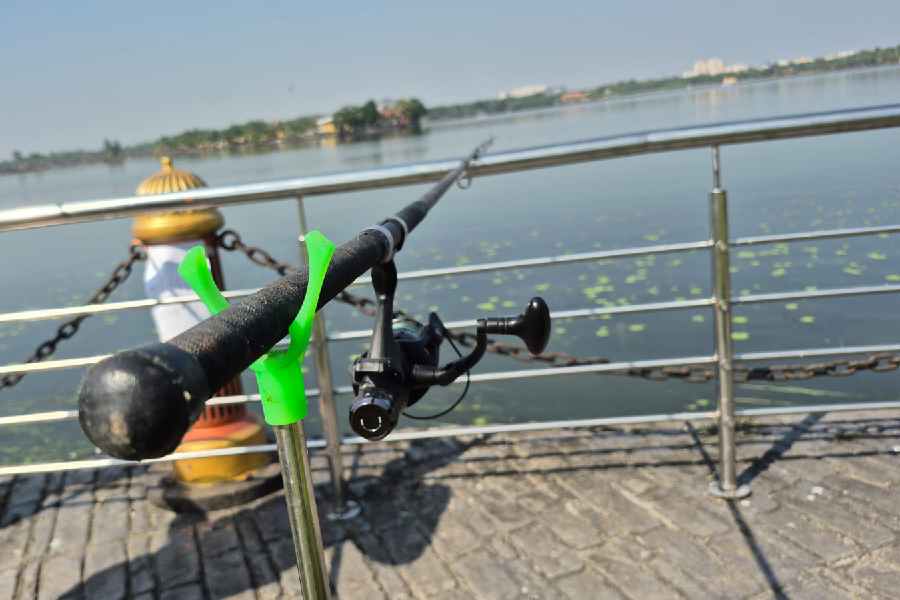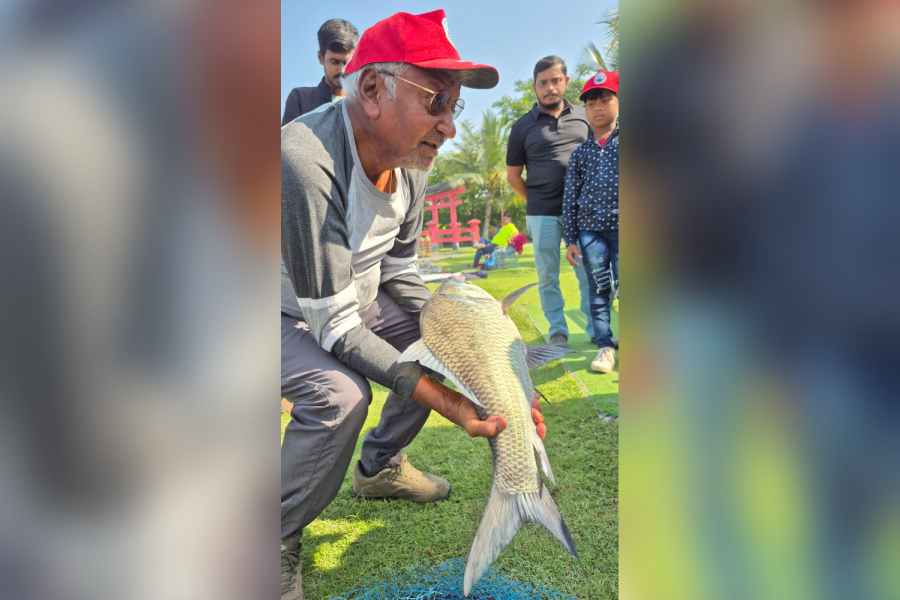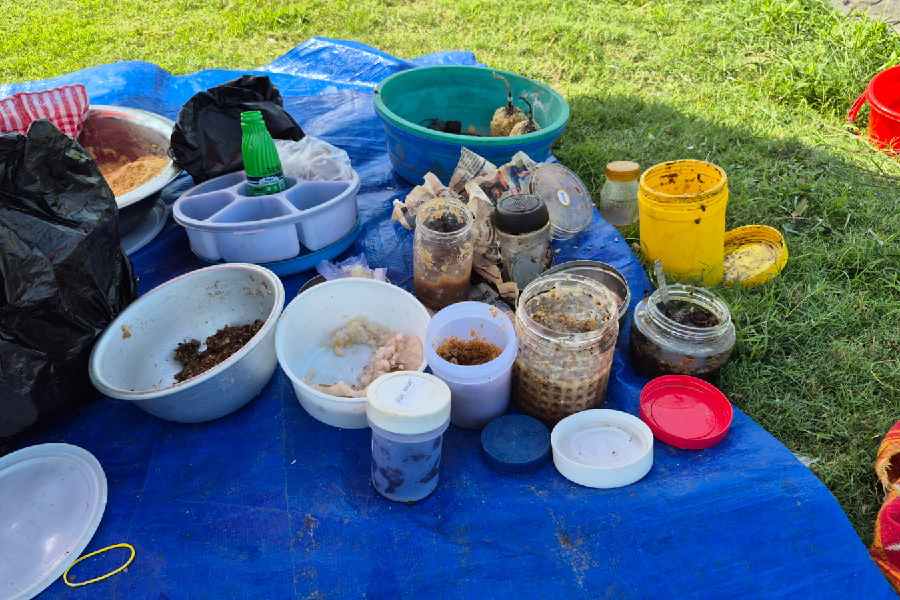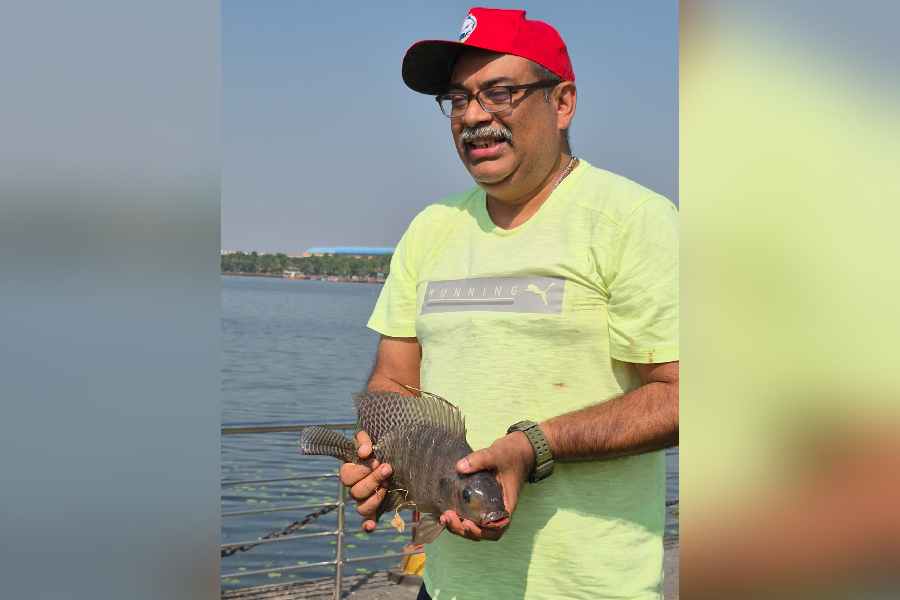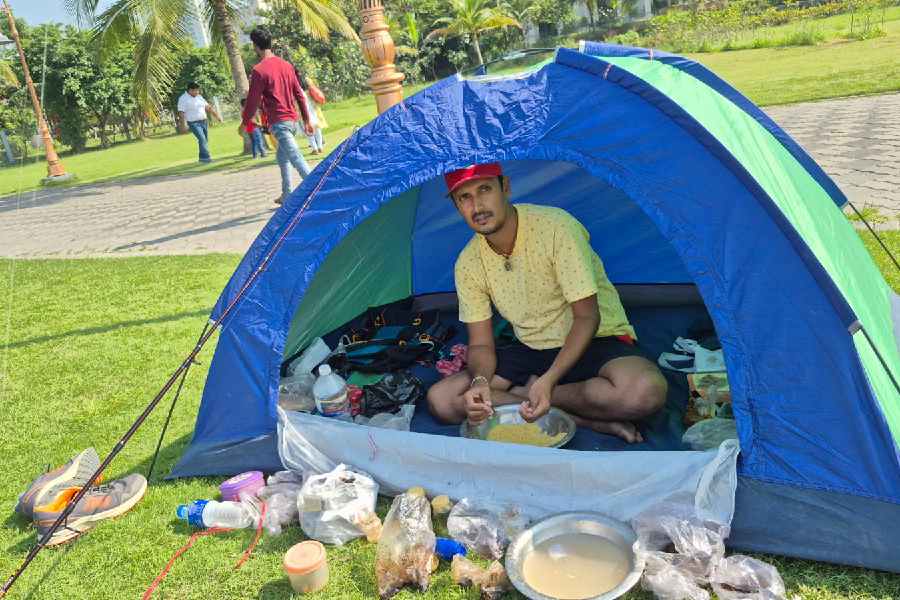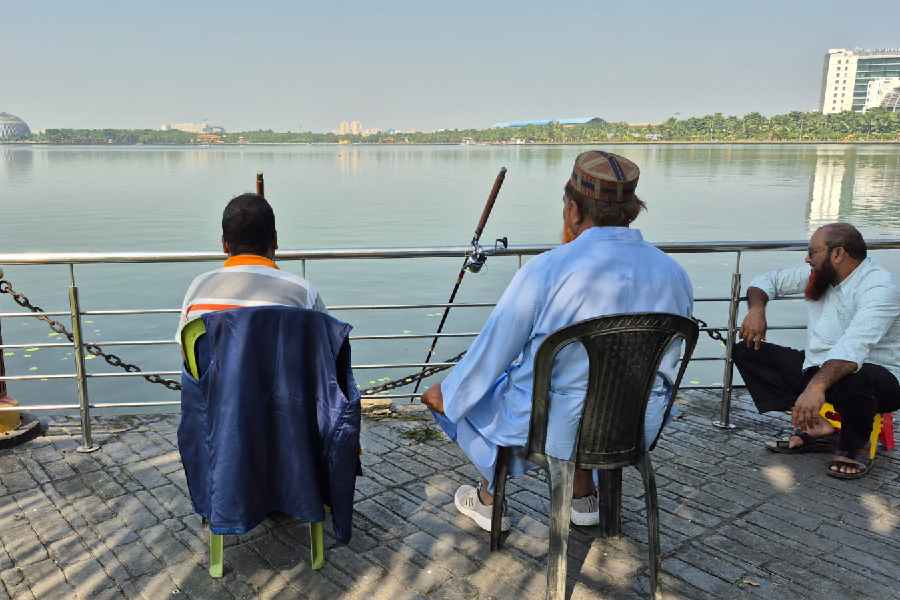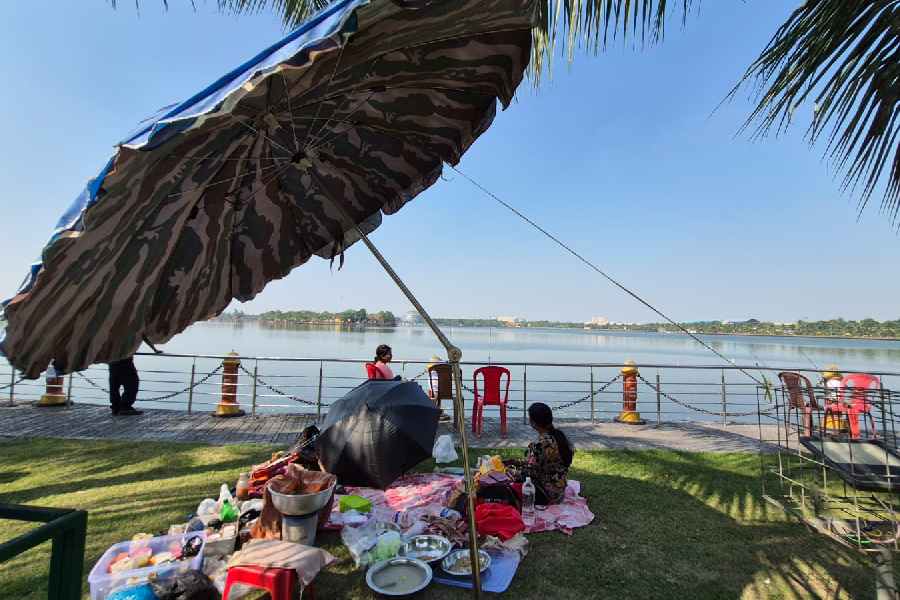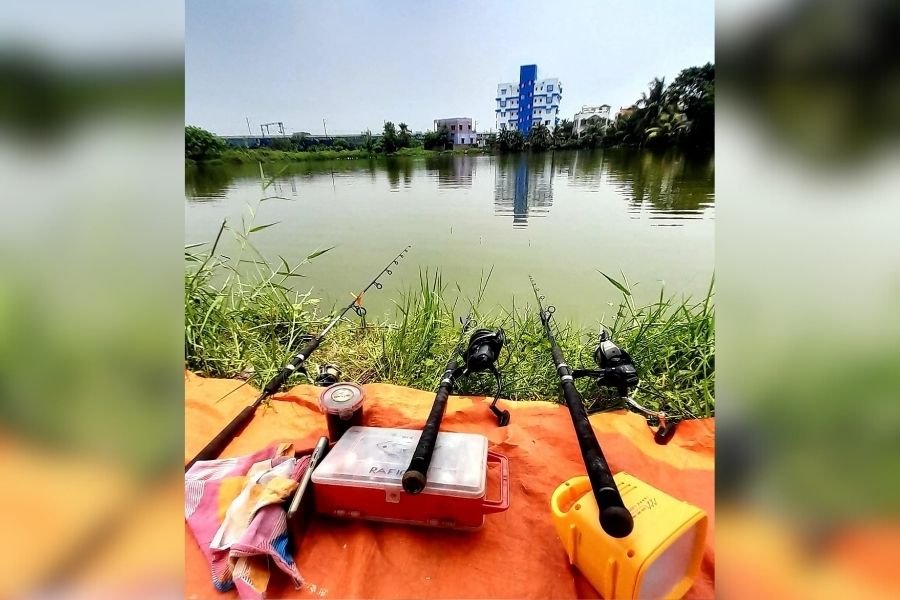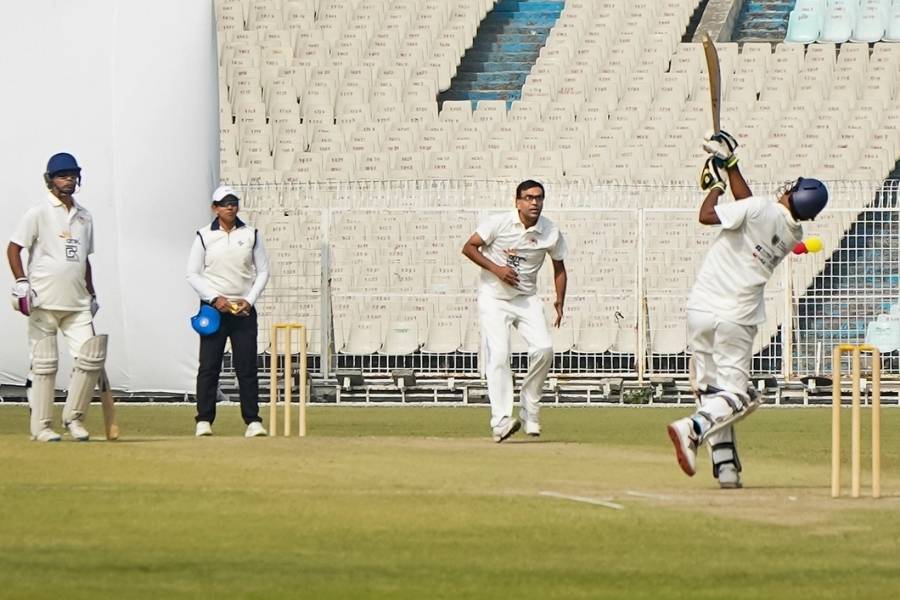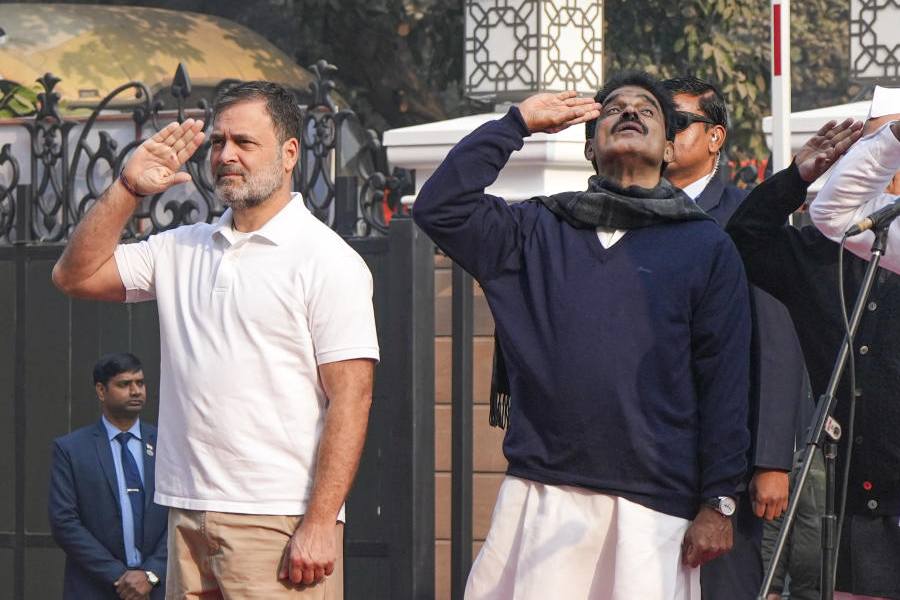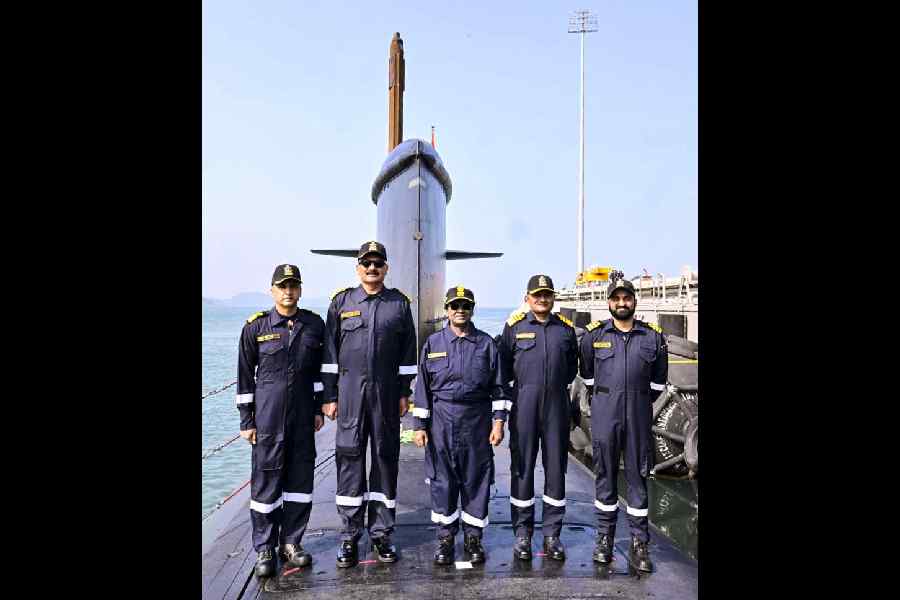As the winter sun rose over Eco Park on a Saturday morning, 56 anglers lined the water's edge, their rods poised and tackle boxes gleaming in the crisp November light.
Tents dotted the lakeside, families gathered with flasks of tea, and children squealed with excitement as fish broke the surface. For two days, this corner of New Town transformed into the unlikely epicentre of a quiet revolution in Bengali leisure culture.
The 14th edition of the Bengal Anglers' Forum tournament — the 11th held at Eco Park — concluded on Sunday (9 November) with Sanjoy Roy landing the heaviest catch: an impressive 11.02 kg Pangas that earned him the Alok Kumar Dutta Memorial Trophy and premium Shimano equipment.
But the real catch, organisers say, is something more elusive: social acceptance of angling as a legitimate sport, not merely a ‘time-wasting’ indulgence.
"When I started fishing 60 years ago, people thought I was wasted," said Rabin Dey, one of the tournament's participant, casting his line with practiced ease.
"My family would say, 'What will people think?' Now I see children here learning the sport. That's the real victory."
From stigma to sport
Fish have always been intrinsic to Bengal — an essential protein source and cultural touchstone. Yet angling, paradoxically, carried a peculiar social burden.
Historically associated with idle aristocracy or dismissed as an "addiction" among the working classes, fishing as recreation occupied an awkward space in middle-class Bengali consciousness.
"There was this perception that if you're standing by a pond with a rod, you're either very rich with nothing better to do, or you're wasting time that should be spent earning," explained Arindam Ghosh, founder of the Bengal Anglers' Forum.
"We're trying to break that mindset. This is a legitimate sport with strategy, skill, and conservation ethics."
The shift is palpable at Eco Park, where the Rs 2,800 entry fee draws a remarkably diverse crowd. Retired army officers chat with schoolteachers. Lawyers compare notes with tech workers.
Teenagers with modest gear hold their own against anglers wielding imported Japanese reels worth lakhs. At 76, Rafiq Qazi claimed third place in the multiple catch category with a 9.57 kg haul, proving that experience often trumps equipment.
"What's beautiful is the camaraderie," said Avik Roy, who participated in the competition for the first time.
"A young participant nearly lost his entire rod and reel when a massive fish took his bait and started dragging everything into the water. Three of us rushed to help him grab it before it disappeared. That's what this community is about," he added.
The catch-and-release ethic
Since its inception in 2014 with the country's first catch-and-release tournament at Baruipur, the Bengal Anglers' Forum has championed sustainable fishing practices.
Every fish caught during the competition must be returned to the water alive after weighing and documentation.
"We're not just fishermen; we're custodians of these water bodies," Ghosh emphasised. "Each tournament includes conservation messaging. We've organised cleanup drives at Subhas Sarovar and Laldighi. We're pushing authorities for better maintenance of public ponds.
Democracy on the waterfront
The atmosphere at Eco Park over the weekend reflected this democratic vision. Between 9am and 5pm each day, the lake buzzed with activity. Cool morning air gave way to pleasant afternoon warmth.
Families spread picnicware on the grass while participants helped each other with landing nets and tackle adjustments. The Forum distributed caps and T-shirts, and food stalls kept everyone fueled.
"My daughter was skeptical when I said we'd spend the weekend watching people fish," laughed Priya Banerjee, 42, who attended with her family. "But she's been mesmerised. She's already asking when she can learn."
That curiosity is precisely what organisers hope to cultivate. The presence of officials from New Town Kolkata Development Authority, including Pusan Gupta and IC New Town Sudipta Laskar, signals growing institutional recognition of angling's recreational and ecological value.
The tournament's two-category structure — heaviest single catch and multiple catch total weight — kept competition fierce through both days. In the heaviest catch category, Sanjoy Das's 10.470 kg Pangas secured second place, while Amit Bose’s 9.460 kg fish claimed third.
The multiple catch category saw Imran Khan take second with 9.58 kg, narrowly edging Qazi's 9.57 kg third-place finish.
Beyond the marquee prizes — high-end Shimano, Daiwa, and Berkley rods paired with quality reels — participants valued the competitive experience itself. Many spoke of the sport's meditative qualities mixed with sudden adrenaline surges when a fish strikes.
Battling upstream
Despite growing enthusiasm, challenges remain formidable. Urban sprawl continues consuming water bodies. Pollution degrades aquatic habitats.
Public awareness about sustainable fishing practices remains limited beyond dedicated communities like the Forum's membership base.
"The battle is uphill," Ghosh acknowledged. "We need more public spaces where people can fish legally and responsibly. We need school programmes introducing children to angling as environmental education. We need recognition from sports authorities that this is a legitimate competitive discipline."
